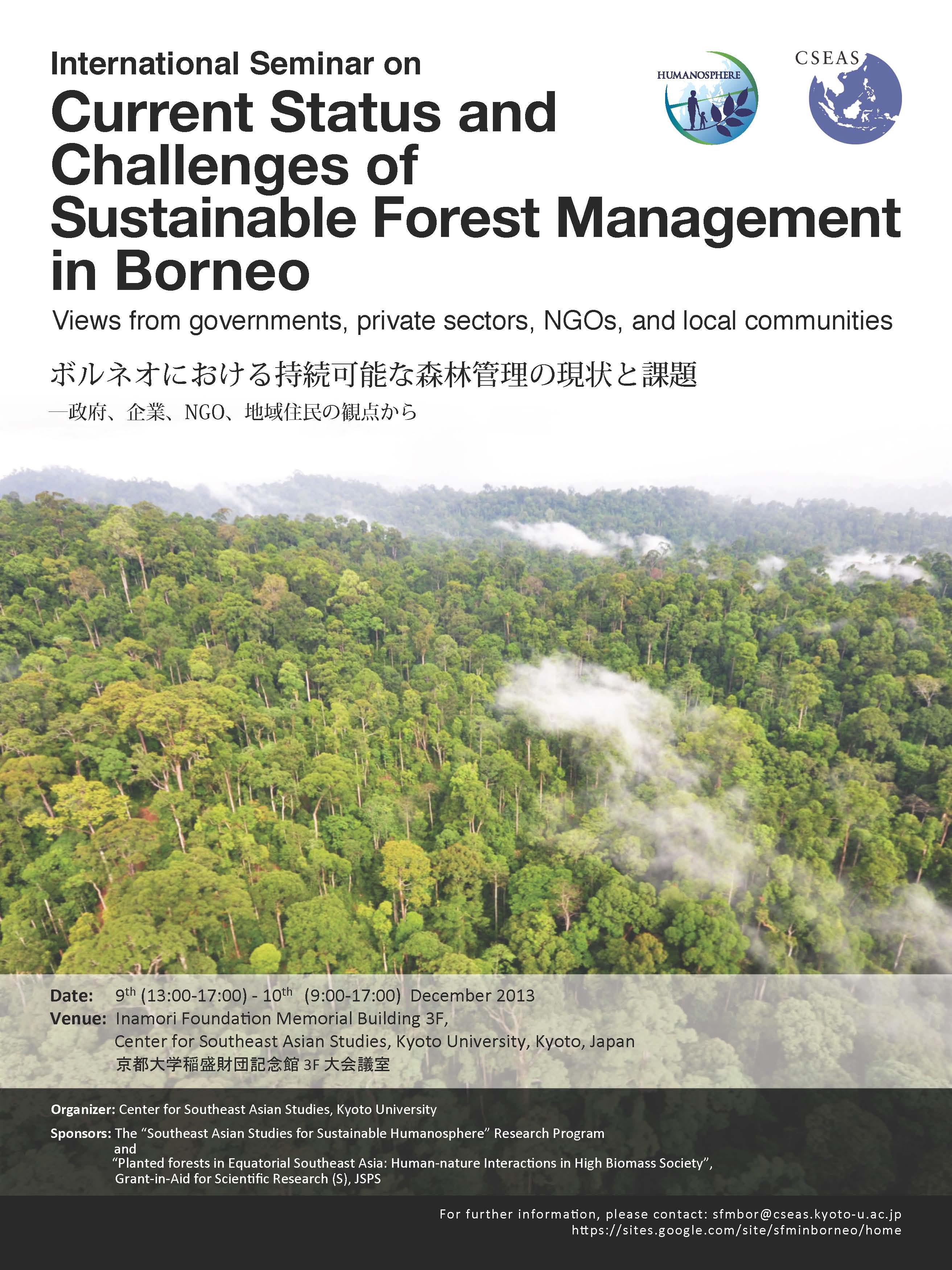International Seminar on December 2013
”Current Status and Challenges of Sustainable Forest Management in Borneo: Views from governments, private sectors, NGOs, and local communities
【Date】9-10th December 2013
【Venue】Inamori Fundation Memorial Building, Center for Southeast Asian Studies,
Kyoto University, Kyoto, Japan


